In conversation with Nelly Furtado: ‘My fruit has started to ripen’
A wide-ranging interview with Nelly Furtado on empathy, feminism, lessons learned, and being true to yourself
LATE NIGHT WITH SETH MEYERS — Episode 479 — Pictured: Musical guest Nelly Furtado performs on January 26, 2017 — (Photo by: Lloyd Bishop/NBC)
Share
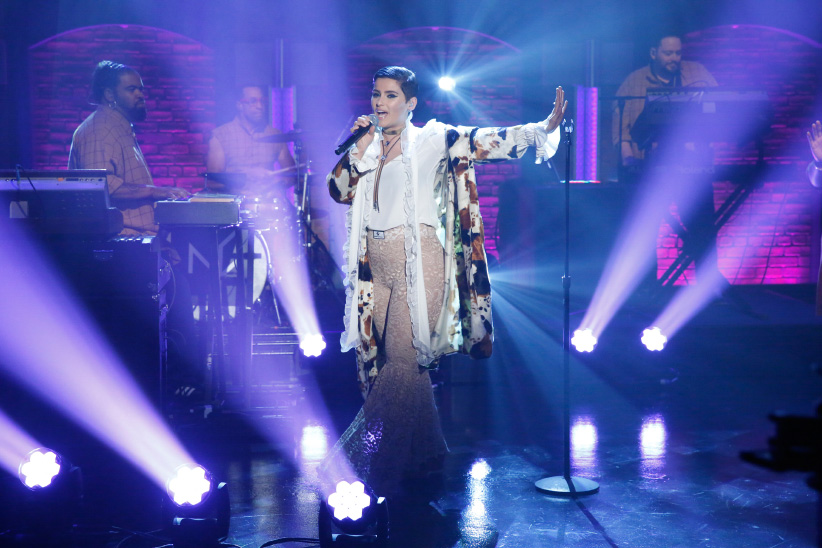
It took pop singer Nelly Furtado nearly two decades to become the artist she wanted to be: an independent one. At least that’s what her upcoming album The Ride—out March 31—suggests. Furtado’s latest record, her sixth, sounds nothing like her 2000 debut, Whoa, Nelly!, which earned her a Grammy and a smash hit, “I’m Like A Bird.” The Ride also strays from the chart-topping, Timbaland-informed hooks of her most successful record to date, 2006’s Loose. Instead, The Ride‘s power lives in gentle ballads such as “Phoenix,” gospel-soaked gems such as “Pipe Dreams,” and ’80s-inspired, synth-driven songs like “Flatline”—a trio of tracks which reflect Furtado’s most holistic-sounding work to date. And that’s intentional: Rather than hold onto the flashy clubland cues of her most notable work, The Ride is the product of her determination to downsize her sound and her own career.
After recording 2012’s The Spirit Indestructable, Furtado left her record label of 18 years to start her new imprint, eschewing the pricey, chart-hungry songwriting teams as she has in the past (The Spirit Indestructible employed Beyoncé’s former production team). Instead, she’s selling music and personalized zines on direct-to-fan music sites such as pledgemusic.com, paired up with a single producer (John Congleton) and released videos that seem more like home movies. In a comprehensive interview with Maclean’s, Furtado opens up on her current artistic philosophies, what it’s like to be a musician in a time of political unrest, and the ways in which she has seen feminism evolve.
Q: What would you say has been the biggest artistic change you’ve experienced since releasing Whoa, Nelly! in 2000?
A: Well, I finally feel content with my work. My fruit has started to ripen. I’m able to dissect emotion properly and distill it into a song that reverberates in a truthful place. I think this has only happened within the last three years. On the last album [The Spirit Indestructible] it took a long time to find collaborators I clicked with. When I did, my record label at the time [Universal Music] wanted me to keep writing with them. I said no. As an artist, comfort can be your worst enemy.
Q: How did you end up finding John Congleton to produce The Ride?
A: I was performing at the Summer Sonic Festival in Tokyo and I was on the bill with St. Vincent. She came backstage and we exchanged numbers. I fell in love with the production on her albums—which John did—and asked her to introduce me to him. He records, mixes, engineers, and produces. He’s also a writer. I’ve never met a producer that does all those things. In our world, it’s a big deal when you have a favourite collaborator and share them.
Q: The standout track on The Ride is the disc’s last song, “Phoenix,” which sounds like a quintessential comeback ballad. What are you hoping to come back to?
A: Myself. I got into the business young. I fell in love young. I had a baby young. I was in my twenties when it all began. Then, all of the sudden, I was juggling a career and motherhood and I felt like I was on fast-forward. My soul had to catch up.
Q: You’ve said you wrote “Phoenix” two weeks after Robin Williams’s death. What parallels did you make with him?
A: Those ideas of somebody feeling so desperate…we can all have those kinds of feelings. When you’re scrambling to fill the void in your life and you feel like you’re drowning… we all yearn to hear that one friend’s voice, say: “You’re going to get through this.” I wanted to have a song that expressed that feeling of hope.
Q: Looking back, how do you think you handled the pressure of trying to emulate the same success you achieved after creating your biggest selling album, Loose?
A: I lost all sense of who I was as an artist—that person who wakes up, sits at the piano in the living room, and writes a song. I started to take a step back from the big pop world. I also wanted to be at home raising my daughter rather than raising her on the road. I was depleted when I came off the Loose tour. I also realized that I had to part ways with the longest business relationship of my life—it was like a divorce.
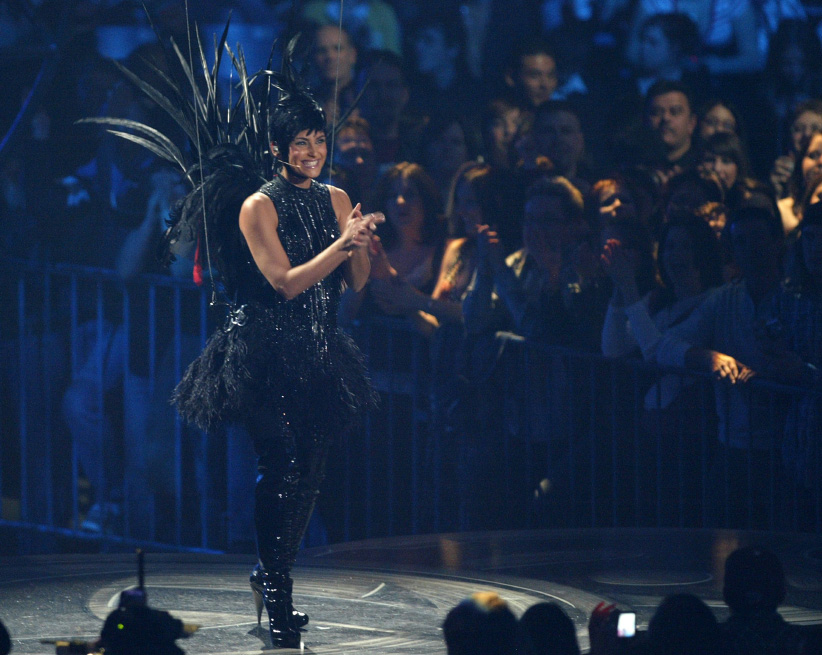
Q: The lyrics off your new song “Sticks and Stones” allude to you taking back the reins of your career. Was that your intention?
A: Yes. The funny thing is [songwriter] Mark Taylor sent me that song out of the blue and it is the only song I didn’t co-write… but it really represented where I was. When I was recording those vocals, I had a conscious drive to make them all my own. I don’t think I’ve ever sang that hard in my life in the studio! Overall, I made the decision I didn’t want anyone fake around me and distanced myself from that kind of energy, so I cleaned house in a way. If this album has any theme of any kind, it would be “give me realness.” We think a lot of B.S. will equate to a happy life—material things and big hits are just exterior markers of success and happiness.
I wanted to look beyond that. I wrote four songs off The Ride while I was in Kenya and they all touch on the same kind of feeling. [The Ride’s first single] “Pipe Dreams” was about walking to a river with all the mamas in this Kenyan village. When you’re in that kind of space, you realize what you don’t need, really fast.
Q: You famously said no to posing for Playboy—even when they offered you $500,000 to appear in the magazine with your clothes on. What stopped you from just taking the money and running?
A: I knew I had to really listen to my gut and my conscience. At the time, so many people were telling me to go in so many kinds of directions; most of these directions did not feel comfortable or relevant to the music. I do feel like I’m a survivor because the music industry is still a boys’ club. I really respect all the women in the business. I know trusting yourself is hard work but it helps you avoid all the traps and labels that come with being in this business.
Q: Do you still feel you have a boss? Do charts, ticket sales and social media numbers dictate what you do at all?
A: Friends remind me that everybody has a boss and you have to compromise at some point. I think when you mature, you realize that you really don’t have to do anything you don’t want to do or be represented in a way that doesn’t suit you. For instance, my cover art for The Ride is very weird. Not everybody gets it. It came from meeting with a few Dallas-based visual artists and getting involved in the art world over there.
Q: You once said that Aaliyah has been one of the only artists you’ve encountered that didn’t get tainted by brand awareness. Is it an epidemic?
A: I think if you truly reflect on Aaliyah, you’d understand she was brand-less. She could be glam and beautiful and turn around be very raw and real. She didn’t impose limitations on herself. If you’re spreading light, you don’t care where the sunshine goes. When you’re too concerned about branding, you’re restricting yourself.
Q: You must have had opportunities to create fashion lines or beauty products with your name slapped onto them. Why have you never jumped into those worlds?
A: I’m always concerned about marketing or commercial philosophies. I can’t feel good about having my name on a bottle of perfume that comes from a factory making perfume with all the same ingredients as every other perfume. I can’t feel good about a factory overseas polluting the air for something with my name on it. I’m okay with music—because it’s digital or a CD. My music is my emotion in a bottle. But how is a perfume supposed to reflect me? How is a sweatshirt supposed to represent me?
Q: So many artists have to dip into the commercial world as well. Is there a way to do this that doesn’t include selling your soul?
A: I think so. I did something this year because it was connected to my past: I was promoting an eco-friendly version of Tide laundry products so I could talk about my housekeeping past. In this way, I could talk all the women in my family who are professional housekeepers. I’m not into branding—I’m trying to be organic to who I am on every level. I do really connect to being a part of the working class. Those are my roots. My family [consists of] farmers from Portugal, builders, housekeepers and stonemasons.
Q: One of your hit songs, “Powerless,” speaks to how you were burdened by beauty standards early on in your career. Now that you can get Botox at the dentist office and photoshopping apps like FaceTune are around, do you think that song was a premonition of sorts?
A: I wish it wasn’t. My daughter’s 13 and her friends use Snapchat and images the way I used a corded phone to talk to my friends. I often think about the idea that augmentation has become the new normal. When you start to augment and filter yourself because you think you should, you’re kind of putting your worth in other people’s hands, rather than having that worth come from within.
Q: In the past, you’ve spoken about resisting plastic surgery and Botox. Have your views changed?
A: I’ve never had any work done. I’ve never had any Botox. It’s the health implications of both that I’m worried about. I don’t know if people are taking the time to meditate on what all these beauty augmentations actually do. Or even asking things like, “how is this going to affect my health 20 years from now?” I’m really into this body-positive movement. I believe the future will reflect different body types, ethnicities, cultures and sexual orientations. I’ve been working with a lot of young artists who really project an androgynous and inclusive approach to the world. I’m very inspired by that.
Q: It’s hard to believe some channels wouldn’t air the video to “Promiscuous” because it was deemed as racy. Why do you think it caused such a stir?
A: I didn’t get it. I still don’t. I had all my clothes on. At the end of the day, certain people were dealing with a few words they were uncomfortable with. I grew up with Mary J. Blige, TLC, Salt-N-Pepa, Queen Latifah…these were women who were empowered. They took responsibility for their sexuality. I tried to emulate that.
Q: In one of your new songs, “Palaces,” you sing about breaking free from the chains. Which ones would you say have been the most restrictive?
A: Masculine and feminine definitions. I definitely believe that we really need to stop putting things in masculine and feminine boxes and realize that men and women both contain masculine and feminine energy. I’m aware of—and embrace—my masculine energy. Sometimes I have too much yang.
Q: Do you think male and female Grammy categories are outdated?
A: Soon they will be. I really do feel that way. Why not all be on the same playing field? It’s the same thing with sports. I feel the male paradigm with sports is really outdated. I was at the NBA All-Star Game [in 2016] about to sing the national anthem—totally focused and totally proud of what I was about to do, when—God bless their souls—all these girls in underwear started gyrating onstage as they introduced the basketball players.
Q: A lot of people on social media were shocked by that All-Star Game rendition of “O Canada.” Do you regret doing it?
A: No. I knew the law was about to pass where they were going to change the lyrics of “O Canada” to “in all of us command” instead of “all our sons command.” The law did pass. I already had my gig straight. I wasn’t going to change anything. I was just doing me. When those cheerleaders came out, I thought, “oh, man!” I got so angry. I thought, “I’m going to change the lyric.” That was a moment I realized my regular everyday is not status quo at all. I was trying to contribute to my true patriotism in my own way. Some of the hate I received had an undertone of xenophobia, like, “Go back to Portugal. I knew you were more patriotic to Portugal than Canada.” For some reason, some people thought I wasn’t allowed to do that because I’m first generation. I wasn’t given the license. It was like, “no, no. You’re not allowed.” There’s so much hate on the internet.
Q: How did you feel after reading some of the social media reactions to your anthem performance?
A: I was in the dumps for a few weeks. A friend told me, “Are you an artist? Don’t second-guess what you did. That came from your heart.” They were right. I walked off that court feeling completely happy with what I’d done. That’s the feeling you take—not the banter in the hallways of a social media platform. That banter only reflects a small percentage of the world.
Q: A new generation is craving the sounds and messages that came from the music of the 90s and early 2000s. Why do you think that is?
A: There’s such a nostalgia for that time before the internet or Twitter. I just got a place in New York last fall. I’ve been working with bands like The Skins, who work out of Bed-Stuy in Brooklyn. They’re an average age of 20. I’ve also been working with [Ziggy Marley’s daughter] Zuri Marley, who expresses herself in a very futuristic kind of way in terms of male-female paradigms. Locally, I’m working with artists like River Tiber. Most of these young artists say the same thing: “You are so lucky that you were making music in that era.”
Q: Has it been tough to sell your label on concepts or images that don’t read as conventionally pop?
A: Yes. I was finishing a video for my song “Bajo Otra Luz” [from Furtado’s fourth album, Mi Plan]—which I co-directed with Aaron A. We basically just went down to [Toronto costume shop] Malabar and rented 22 costumes. We wore them off a Dundas alleyway. I remember [being told], “there are these two shots that the label doesn’t really like.” I felt like I was already starting to become an independent artist, and I said “I don’t care!”
I can’t understand marketing. I think it’s because I never looked at what I do as a job. I’ve rebelled against that and I will continue to. There’s something magical about writing songs and to have somebody crying in the audience while I sing “Try”. When that happens, I’m not thinking, “how can I brand this moment?” That’s dissonant to me.
Q: A new song called “Right Road” touches on your sense of journey to self-reliance. Were there any major mistakes you vow to never repeat from your previous albums?
A: Any time you turn off and let someone else make any artistic decision for you, you make a mistake. That’s why I had to slow things down, simplify, and minimize. When there’s too much around me, my mind shuts off. Even for my live shows, I think at one point I was just on autopilot. I can’t really detail when that was, but it was sometime in the last 10 years. “Right Road” has a lyric I take to heart: “The high and mighty, they have fallen on a road to hell paved with good intentions.” You can have the best of intentions and think you’re doing the right thing but you fall down when you’re going against your own instinct. I was in such a bubble. I didn’t see that I wasn’t taking the time to come back to me.
Q: Were there any doubts about writing The Ride in such an isolated way?
A: Yes, I remember waking up in a panic at 3 AM before a writing session in London. I was at a bed and breakfast in the middle of nowhere thinking, “What am I doing here?” You know what I did? I got up, opened up my laptop, and thought, “Strap your boots on. I can do this.” If you can’t express yourself and vouch for yourself and what you’ve made a lot of sacrifices for, then why are you here? I wrote “Phoenix” the next day.
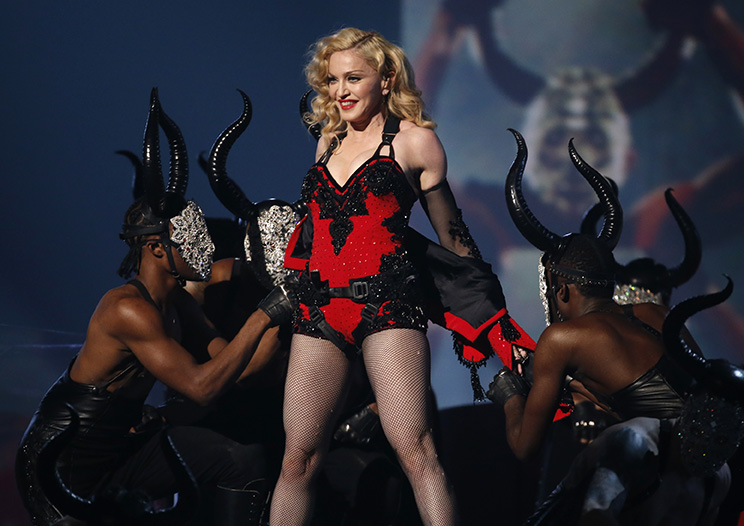
Q: Madonna gave a speech at the Billboard Music Awards where she stated that she’s felt like a doormat in the music industry for 34 years. Could you relate to any of what she was saying?
A: All of the women in this business understand that. They’re fighting in a misogynist world. That’s why they wear some elements of their femininity and have to blend it in with masculinity…it’s a kind of protection. Somebody like Madonna is strong but soft. You have to be that way in this business. I remember when I met Katy Perry for the first time and this was before her first big album. Katy said, “You might not remember, but a few years ago, I waited outside for hours to meet you and somebody sweet let me come backstage.” I did remember meeting her and told her that. I saw the fire in her eyes back then! It was a room filled with people for a meet-and-greet but when we had a chance to chat, one of the things she said she already learned was that the music industry was totally a man’s world. Make no mistake: we’re all empowered, but we’re aware of what we’re fighting for. Madonna’s speech was completely honest.
Q: Is it tougher for women in the industry to be brutally honest about equality?
A: Yes. Ariana Grande tweeted about somebody saying something sexist to her and her boyfriend. She responded on Twitter saying, “I went through something today that really bothered me.” Then she received backlash for it! All she did was tweet her feelings and people felt like they could criticize her. When I first started out, people never wanted to hear the word “feminism”. They were freaked out that I reading Mary Daly’s Pure Lust or The Beauty Myth by Naomi Wolf. These are hardcore philosophical feminist books. It helps when artists like Beyoncé are owning their femininity and owning the word feminism.
Q: When it comes to relaying any of this to your daughter, what approach do you take?
A: I’m conscious of not giving those types of books to my daughter too early. When you’re a teenager, you’re finding yourself and your tribe of women. She’s now expressing herself through makeup and beauty. I have a close friend who is a makeup artist that tries to find a spiritual take on the industry she’s in. She talks about the moment a girl becomes a women [when it comes to decisions like] buying a tube of lipstick. We can’t automatically think about young women in makeup negatively. Sometimes a woman engages in these new forces and energies of beauty coming into her world. They can become tools. She’s trying to express her femininity outwardly. I’m still learning too. I just sent my makeup artist a photo reference of James Charles [CoverGirl’s first-ever male ambassador] to use for my own [palette]—it was a screenshot of his eye because it’s so beautiful. People like him give me some hope.
Q: On his podcast, author Bret Easton Ellis talked about how frustrated he gets when women in pop are habitually framed as victims. He cited so-called social justice warriors as something quite debilitating to all art. Are these things you think about when creating?
A: Sometimes. If we stepped away from so much of the victimhood talk, I think that would make a big change for the better. It does limit art. The conversation wouldn’t just be one-sided. And yes, as an artist, you can get nervous when making a music video these days. You think, “I really want to feature my friend in this,” but then you have doubts and think, “what if it looks like I’m objectifying their difference?” Somebody might see it as me tokenizing or objectifying or trivializing him or her—even though featuring the person could come from such a good place.
Q: You’ve been tested a few times in your career. When you sent your record company Loose, they reportedly told you it was too raw and too urban-sounding. It became your best-selling disc. When you recorded an all-Spanish album called Mi Plan, you were told it was career suicide. It won a Grammy. Are these victories hard won?
A: Oh yes. But when you follow your heart, you always win and it feels so good. When people were [objecting] to me making Mi Plan, I thought, “way to offend billions of people who speak Spanish!” It was offensive and ignorant. Maybe half of those people commenting haven’t heard a song in Spanish in their whole life so I didn’t listen to what they had to say.
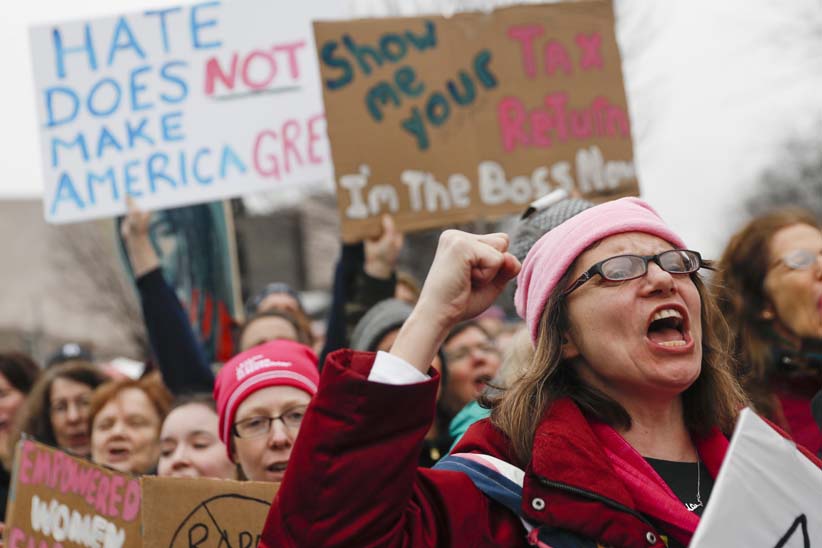
Q: What do you think about the protests against Donald Trump getting so much support by musicians?
A: It’s important. I actually feel pretty inspired and hopeful by the fact that protests are becoming the norm now. They’re less part of fringe society and more a part of mainstream society. That’s exciting. There is no fringe anymore. We should all be included. I did some work with a group called Girls for Change in Tunisia and the Gaza Strip. That was for Free the Children. Basically, it was this female engagement platform locally with female role models. I met those girls in Kenya a few years later. Through social media, they’ve done a lot. They’ve created an inspiring web gallery of themselves on the front line of protest. It creates a sense of empathy.
Q: Is keeping a sense of empathy hard to maintain?
A: Yes, especially today. Part of that piece I worked on at the Museum of Modern Art was about that. I wanted to prove empathy between any human being. I believe that there’s a collective unconscious. What I was trying to experiment with was that I’d bring in a group of three people with me to write a song and prove empathy. I’d ask them what they dreamt last night and it would come out in song. There are tears. There’s laughter. There’s an unconscious thing happening between us as humans. There’s so much about the brain that we don’t understand. I believe everybody’s empathic.
Q: Do you feel that you can empathize with someone like U.S. President Donald Trump? Many believe he is beyond empathy.
A: He’s human. Everyone has empathy. I don’t really believe in good and evil. I never had. I think it’s enabled me to open my mind. I’d love to try and teach him how to write a song. I’d love to put him in a room with another person—someone who’s protesting him at the Women’s March. I’d put the three of us in a room and all write a song together. If that can happen, it proves we can get over our differences.
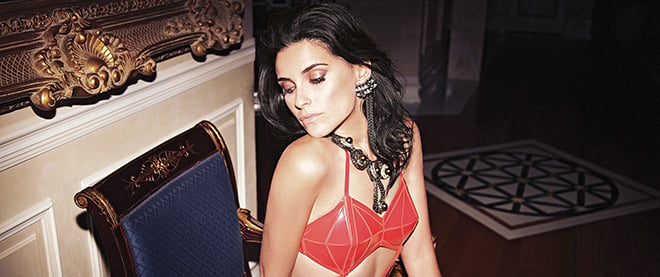
Q: How much did the internet inform the lyrics of one of your new songs, “Islands of Me”?
A: Well, that song is about this culture of me, me, me. Since our online libraries are so extensive, we think we can make all the right decisions about our personal health and well-being by pushing buttons. It’s not intuitive anymore. That’s the internet. Before the net, we would have gone to the community or our families to see what we should do. We often feel more isolated on our own little islands because of it. We may look great on Instagram, but we’re still lonely and depressed and anxiety-ridden. I hope, for the sake of our future generations, that our moral compass stays intact.
Q: Artists such as Jane Siberry have been rewriting traditional music distribution deals for years by using the internet. Fans can email her directly and request mini concerts at their homes. Is this practical?
A: I think that’s the future. You’ll only get the hardcore fans that way. She’s smart. Right away, you’re playing to people who want to hear the B-sides. Let me tell you, in a stadium, you’re not playing to people who want to hear the B-sides. The ones who like the B-sides probably aren’t happy to stand in a stadium. For this album, I’m not really doing the old-school release thing. We’re not necessarily doing radio. We’re streaming. Because I own my album and am totally independent and I own my masters, that allows me do my thing, my own way.
Q: What would you say you are doing right now that you were not able to do when you were starting out?
A: I’m having a lot more fun living life. My new motto is “plerking”—I play and work at the same time. It seems crazy but it took a while to figure out something so simple: art and life go together. I have to have a life filled with experiences to make art, and I have to have art around me to live well.